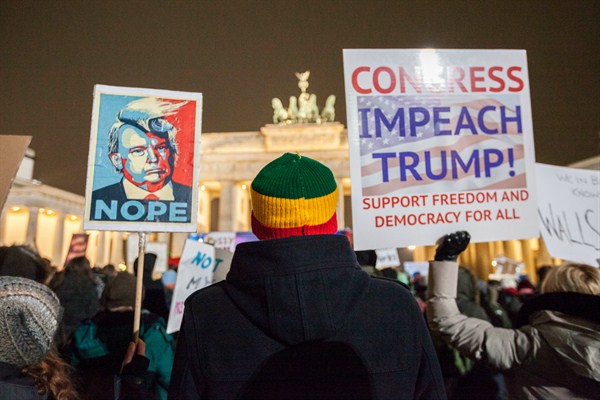German Chancellor Angela Merkel arrives today in Washington, where she will meet with U.S. President Donald Trump for the first time. The trip was initially scheduled for earlier in the week, but was delayed by a snowstorm that hit the East Coast. It was perhaps a fitting prelude to their first encounter.
After all, when Trump was elected president of the United States, Merkel sent him a congratulatory message that seemed, in no uncertain terms, to be a rebuke to his behavior and rhetoric during the campaign. She suggested that Germany would only cooperate with the United States if it continued to support the values of “democracy, freedom and respect for the law and the dignity of man, independent of origin, skin color, religion, gender, sexual orientation or political views.” That led a chorus of commentators to immediately jump to the conclusion that Merkel was the new “leader of the free world.” But comforting as it would be to believe that the woman sometimes known as “Mutti,” or “mommy,” could simply replace the American president in that role and protect the values for which it stands, it is an illusion.
Merkel was right to describe such expectations as “absurd” and even “grotesque.” The differences between Germany and the United States as powers in international politics—particularly the vast differences between them in terms of military power—make the comparison between the chancellor and the president flawed. They also ignore the deep problems that Germany faces within Europe after Trump’s election—problems for which Merkel was largely responsible.

